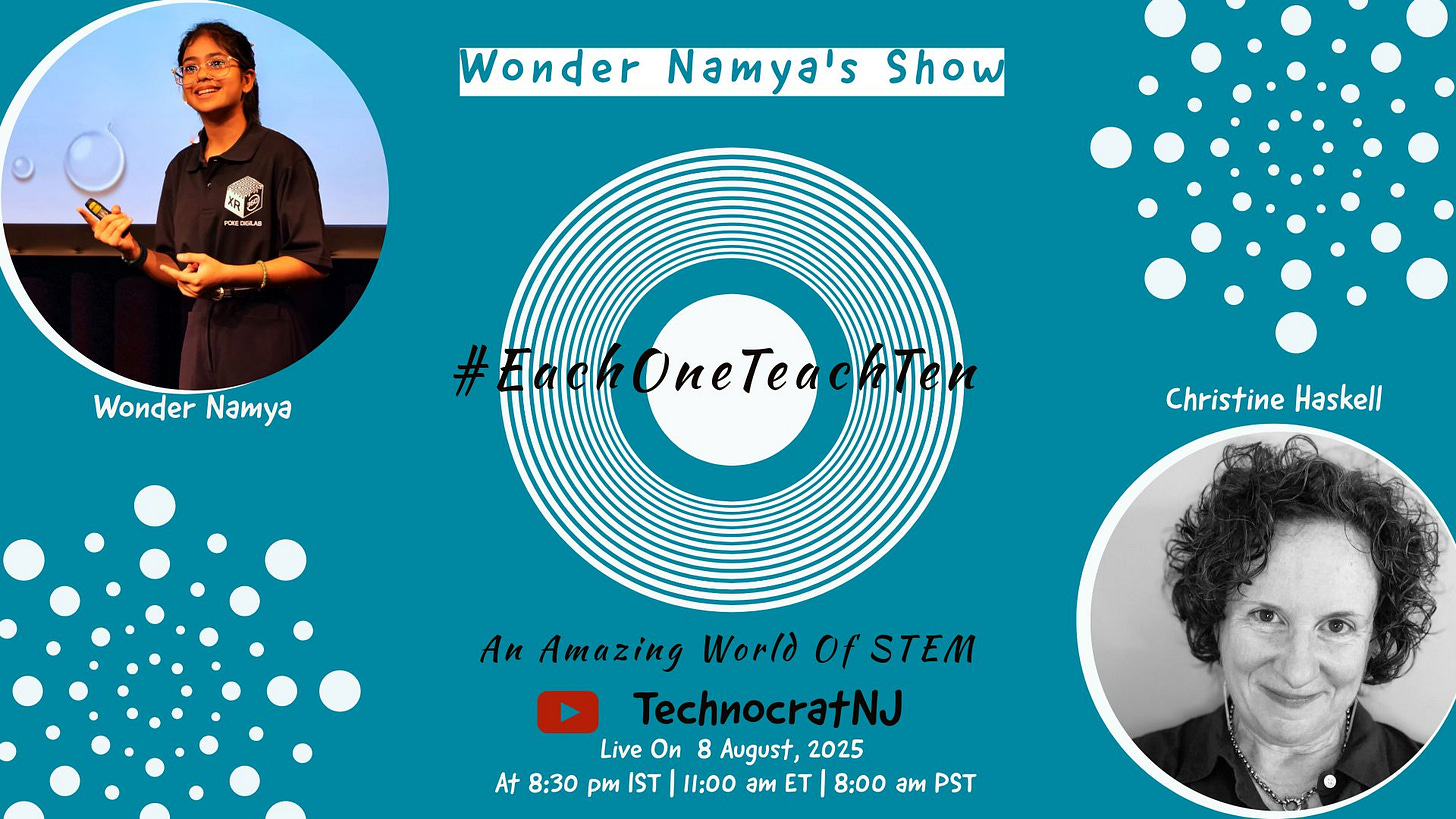Different Heights, Same Horizon
Generational perspectives on AI, governance, and the values worth keeping
A conversation across generations on AI, governance, and keeping purpose in the room. [ Play Episode ] [ Subscribe to her Podcast]
Namya is eighteen, about to start college, and dreams of breaking into gaming, like games for good. I’ve spent decades in rooms where harm happens quietly. Not through malice, but through the slow pull of misaligned incentives, like speed, scale, engagement, profit, outweighing purpose. Silence does the rest.
We met on her podcast. She kept saying she’d never had a conversation go this deep, and I believed her. She is a steady, unhurried interviewer, the kind who listens all the way through a thought. It made me realize you don’t have to be perfect to try something new, like podcasting, if you can hold the space like that.
We got into values drift, the slow slide away from why you started. I’ve seen it in organizations, teams, and leaders. It’s not a scandal, it’s a forgetting. She didn’t just nod; she began co-creating ideas for how students could be in the room before those decisions are made, helping decide what an AI should be allowed to do in a school, and starting governance earlier.
From there, we moved to leadership. I shared reflection practices like Strategic Pauses and Disruption Protocols—stopping before acting, even when every signal says hurry. In her world, it’s the opposite: the pull is to adopt everything, instantly. Pausing feels like losing ground. But she could see how it might be the thing that protects what matters most.
Then we got to language. Words like autonomous and intelligent are often applied to AI until people start believing it can think. She wanted students to rip those words apart in class, find the hype, and name the gaps. I wanted them to learn the rhythm of curiosity and skepticism: be drawn in, then question everything.
By then, it wasn’t an interview anymore. It was two people looking at the same landscape from different heights, pointing out what the other couldn’t quite see. She reminded me that young voices aren’t powerless; they’re often the clearest. I hope I reminded her that reflection isn’t soft, it’s a skill, and that if it feels too comfortable, you can probably risk going a little deeper. She’s got this. :-)
If the internet were built on unacknowledged influence
What invisible infrastructure is AI being built on now, and
Who in your organization has the nerve to see it before it’s too late?
Leaders who don’t design for reflection inherit ritual. Agency breaks the pattern. Governance sustains progress.


